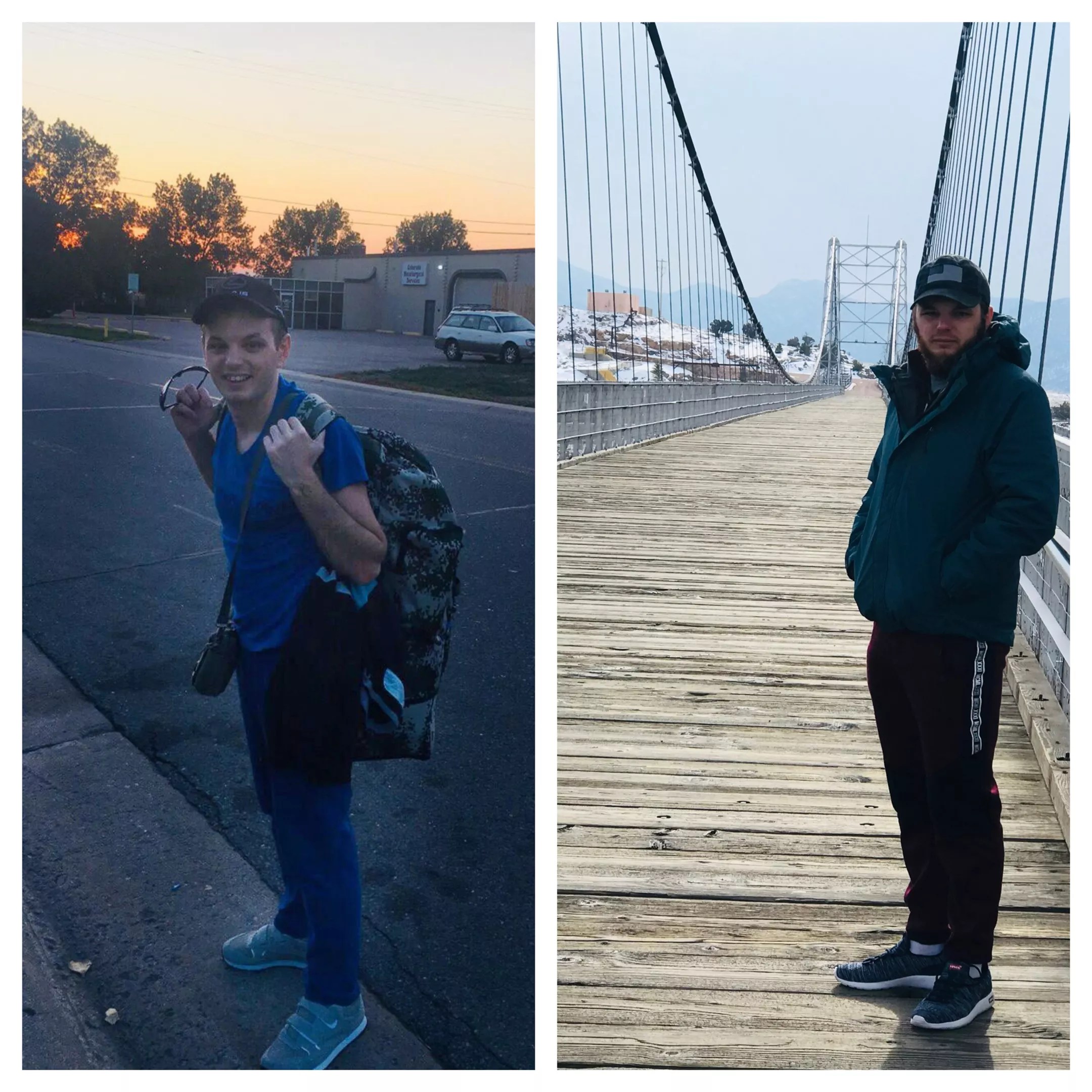
Kenzie Bruce

Audio By Carbonatix
“Good luck.”
That’s all a medical staff member said to a detainee at the immigration detention facility in Aurora when he tried to get an appointment with the staff physician in February. The detainee, who has “significant, ongoing medical issues,” according to his attorney, first sent a written request to the detention center’s staff about seeing a doctor, then followed up in person, all to no avail.
The odds of him seeing a medical professional are slim. There’s only one full-time physician at the facility, and that doctor oversees its thousand or so detainees.
Immigration lawyers, medical professionals and politicians say that this ratio is one of many examples of extreme medical neglect at the facility run by GEO Group, a for-profit prison company, via a contract with Immigration and Customs Enforcement.
The detention center could hold up to 1,100 detainees before January, when GEO Group expanded the facility with a 432-bed annex.
“Having one doctor is inexcusable, and that’s part of the reason why we’re seeing people suffer the way they are there,” says Danielle Jefferis, a civil-rights attorney working pro bono for Denver’s Novo Legal Group, which specializes in immigration law.
ICE contends that it takes the health care of its detainees seriously.
“I believe that our facilities are doing even more than is required,” says Homero Mendoza, deputy ICE Denver field office director. A statement from the federal agency provided to Westword offers some more insight. “The medical program at the Aurora Contract Detention Facility provides 24/7 medical services; is supported by a team of medical professionals that includes a full-time physician, a full-time physician’s assistant, a cadre of nursing services, dentist, psychologist, psychiatrist, and additional medical specialists, as well as referrals to local hospitals as needed; and is fully accredited by the American Correctional Association and the National Commission on Correctional Healthcare.”
Jefferis says she has heard countless horror stories about medical neglect from her clients at the facility. “Lack of attention and care is not uncommon among prison health care generally. But a lot of people whom I’ve represented have said it’s worse than prison and that they’d rather be in prison,” Jefferis says.
Other lawyers working with detainees at the facility also question the decision to keep one doctor on staff.
“That seems to be way overstretching that one doctor. My position was that Aurora was already stretched too thin, so adding 400-plus people [via the annex] that have medical and mental health needs just stretches it beyond a breaking point,” says Liz Jordan, an attorney who advocates on behalf of detainees through the Civil Rights Education and Enforcement Center. Some of the detainees Jordan works with have gone through serious physical and mental trauma, either in their home countries or during their journeys to the U.S.
“When you fill out a petition to see the doctor, you’re lucky if you see her within a week,” says Andrei Gritskevich, a 29-year-old Russian refugee.
Gritskevich crossed the U.S.-Mexico border in March 2018, seeking asylum from Russian police for his support of Alexei Navalny, an opposition candidate for president. But asylum cases take time, so Gritskevich wallowed away in ICE detention, spending the majority of the spring and summer of 2018 at the facility in Aurora. During this time, Gritskevich lost close to forty pounds, he says.
Part of that weight loss may have been the result of a stomach illness that Gritskevich dealt with during his time in detention. The pain and sickness got so bad at times that Gritskevich says he would lose consciousness.

The photo on the left was taken shortly after Gritskevich got out of the detention center; the photo on the right is more recent and shows Gritskevich at his normal weight.
Courtesy of Andrei Gritskevich
One of the times that he did get called in for a doctor’s appointment, Gritskevich says, he was taken to a waiting room where he sat for four hours, which was especially excruciating as he was dealing with diarrhea at the time. When he asked about going to the bathroom, guards either ignored him or told him to wait. After four hours passed, Gritskevich says he was told that the doctor was done for the day and Gritskevich would have to go back to his living quarters without seeing her.
Medical professionals contend that Gritskevich’s experience of poor medical care is by no means unique to the immigration detention facility in Aurora.
“Across the board, it feels like there’s a significant medical neglect issue” at such facilities, says Altaf Saadi, a neurologist and clinical instructor of medicine at UCLA who has visited immigration detention facilities across the U.S. “I think that’s especially true at the detention centers that are operated by private prison companies. Their incentive is to maximize profit, so they cut corners and end up losing out on adequate health care.”
In recent months, the detention facility in Aurora has seen multiple chicken pox and mumps outbreaks, leading to the quarantine of hundreds of detainees, including more than 350 at one point this month. On the morning of March 6, more than fifty detainees in one housing section began a hunger strike to protest the quarantine.
The facility recently started offering current and new detainees and staffers a vaccine to prevent measles, mumps and rubella after a recommendation from the Tri-County Health Department and Colorado Department of Public Health and Environment.
But medical issues at the detention facility in Aurora aren’t limited to infectious diseases.
Aaron Elinoff, an immigration attorney at the Novo Legal Group, has represented numerous detainees at the Aurora facility. “One client slipped in the bathroom, hit his face on the toilet and broke his eye socket. They made him wait in the medical examination room for several hours before they took him to the hospital,” says Elinoff.
ICE declined to answer questions about specific allegations made by detainees and their lawyers, citing privacy concerns.
When he finally got to the hospital, Elinoff’s client was told to come back in a week to schedule surgery on his orbital bone. But staff at the GEO facility never brought him back, Elinoff says.
Some of Elinoff’s clients have health conditions that become so dire, the facility releases them with an ankle monitor so they can get the medical treatment they need, Elinoff explains.
“When an individual is so destitute and their physical health is so dire that they really, truly require medical care, they release him, rather than take him to a doctor,” he says. “The reality is they make money by providing as few services as possible.”
“I don’t know what it’s going to take for GEO and ICE to take medical treatment at the facility seriously. I think what it demonstrates is a complete disregard for human life and for the well-being of those being held inside,” says Arash Jahanian of the ACLU of Colorado.
Jahanian is pushing ICE for more information about the December 2017 death of 64-year-old Kamyar Samimi while in ICE custody. Samimi died not long after being transported from the Aurora facility to a nearby hospital.
Congressman Jason Crow attempted to visit the facility unannounced in February but was not allowed past the waiting room.
“I’ve been receiving numerous very disturbing reports about the lack of health-care services and the general state of the facility. That’s what prompted my visit,” says Crow.
The Democratic congressman has yet to receive answers to the various queries he sent ICE and the Department of Homeland Security about the facility.
“We’ve been met with silence,” he says.